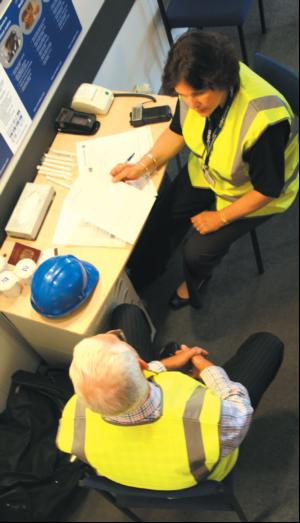Suggestions by the TUC that some employers are misusing drugs testing techniques has brought the practice into the spotlight. Iain Forcer argues that the exercise has its place provided it is backed up by a support programme.
The statistics on alcohol and drug use in the UK reveal the significant issues facing society and the major consequences for the criminal justice system and public health. Less evident, however, is the impact on the workplace.
According to the HSE, alcohol is estimated to cause between three and five percent of all absences from work. This equates to some 8-14 million lost working days in the UK each year, at a cost of approximately £1.5 billion to the UK economy. The official cost of drug use to employers is a little less clear, however, in the UK last year some 2.3 million adults used cannabis, almost half a million took ecstasy and nearly three quarters of a million adults used cocaine.
European provider of drug and alcohol testing services, Concateno, has documented drug and alcohol trends from over 12 years of workplace testing data, based on almost one million samples.
Concateno discovered that overall drug/alcohol positive rates ranged from two percent to six percent, depending upon the industry sector, the nature of the regulation that supports the testing, and the length of time that testing has been a norm. The company also found that the most commonly abused drugs in the workplace are cannabis, alcohol and increasingly cocaine.
Clearly, it is in the interest of any company to avoid circumstances leading to accidents in the workplace and it is part of the duty of care that the employer has to maintain a safe working environment.
Health & safety managers have a vital role in educating employees and managers on both the dangers of drug and alcohol abuse and any signs indicating that employees are in need of some assistance.
Furthermore, the law is getting much tougher and reinforcing the personal liabilities that individual managers may face if they are found not to have taken reasonable care to prevent accidents.
Although health and safety legislation is currently under Government review.
The Health and Safety Executive sends a clear message to employers that they should take a proactive stance. Its website recommends that "employers should adopt a substance misuse policy, in consultation with their staff." An active substance misuse policy is the employer's first key tool in addressing alcohol and drug problems and establishing expectations (many industries restrict blood alcohol levels to 40mg/100ml (0.04 percent) for employees at work â€" which is the same as the new UK drink driving limit if Sir Peter North's recent recommendations to Government are formalised).
Introducing regular drug and alcohol testing can be highly effective, not only in identifying problems, but also in reinforcing the message that a company takes misuse seriously. Doing so in consultation with employees helps ensure their understanding of your policies and that testing is conducted in a sensitive and fair manner.
In a recent statement, TUC general secretary Brendan Barber called on the government to implement clear guidelines for workplace drug testing, stating that random drug testing in the workplace is of 'dubious legality'. He also warned that some employers may be using random drug testing to try and get rid of employees and avoid redundancy pay.
Workplace drug and alcohol policies should not be used by employers simply as a way of identifying and dismissing employees with a drink or drug problem.
They should be supportive rather than punitive. While a policy should be clear that possession or dealing in drugs needs to be reported to the police, a policy should seek to help employees rather than lead simply to dismissing them.
Emphasis on employee support Drug and alcohol abuse is really all about individual lives. It can often be the result of other factors in an employee's personal or working life. Therefore, it is important to consider an effective employee support initiative such as an Employee Assistance Programme; such as a confidential service that often combines online advice with 24-hour phone assistance. Help is provided on a range of issues such as financial concerns, bereavement, or family problems that can ultimately help address the causes of substance misuse as well as its worst consequences. Concateno also offers drug and alcohol assessments, counselling, medical detoxification support, and an ongoing rehabilitation programme.
A good workplace drug and alcohol policy needs to satisfy two aims, on the one hand serving as a deterrent, while on the other to providing effective support.
Many UK employers will have such a policy in place; however, many of those will have been unchanged for years.
Concateno urges every employer to review their policies to ensure they are up to date, adopting an active policy to ensure the welfare of their employees.
Iain Forcer is spokesperson for Concateno's Employee Services.


